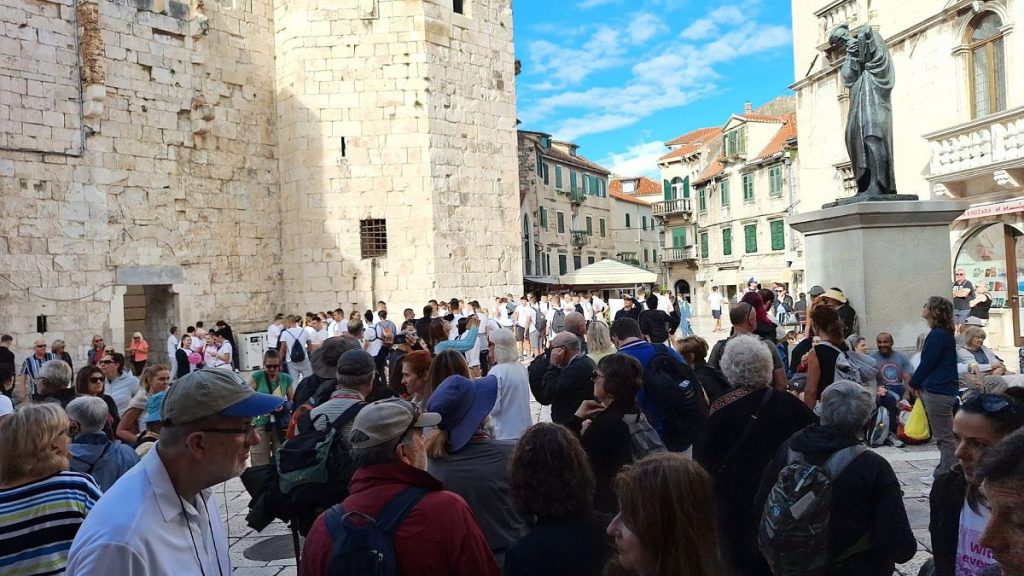Split locals are determined to change the city’s image as a party destination and attract more polite families as tourists. The influx of rowdy tourists, particularly during music festivals like Ultra Europe, has put a strain on the local economy. Short-term visitors have driven up rents, making it difficult for locals to afford housing. The city has also had to increase security to deal with antisocial behavior such as public drinking, urinating, and other disturbances.
The hedonistic image of Split is not only an economic strain but also eroding the city’s identity. Locals recall a time when the city had more local restaurants and cafes serving traditional Croatian food, but now these have been replaced with tourist-friendly options. The influx of younger tourists coming for music festivals has pushed out locals and driven prices up. While tourism does bring economic benefits, it has also changed the landscape of the city and pushed locals out of the city center.
Although Split relies heavily on tourism for its economy, there are growing concerns about overtourism and its impact on the city. Many locals depend on tourism for their livelihood, with the busiest season in summer helping them through quieter winter months. Efforts are being made to make tourism more sustainable, including regulating accommodations based on carrying capacity calculations and increasing security to curb anti-social behavior. Initiatives like the ‘Respect & Enjoy’ campaign aim to promote responsible tourism and attract visitors outside of peak summer months.
In response to growing tensions related to tourism, the Tourist Board of Split commissioned a comprehensive study on the tourism carrying capacity of the city. The study highlighted issues of overtourism in the crowded city center and led to regulations on the number and type of accommodations available based on carrying capacity calculations. More security services and municipal wardens have been employed to address anti-social behavior, especially in the Old Town. Accommodation providers are encouraged to set clearer rules for guest behavior.
There are concerns about the impact of tourism on Split’s identity, with locals feeling that the city’s character is being eroded by the influx of party tourists. The shift towards more tourist-friendly options for restaurants and accommodations has changed the city’s landscape and pushed locals out of the city center. Efforts are being made to strike a balance between supporting a thriving tourism industry and preserving the quality of life for residents. The goal is to ensure that tourism development is socially, ecologically, and economically sustainable, with a focus on improving the quality of life for residents.
Overall, Split is facing challenges related to its dependency on tourism, particularly during the busy summer months. Efforts are being made to address issues of overtourism, regulate accommodations, and promote responsible tourism practices. While tourism does bring economic benefits, there are concerns about the impact on the city’s identity and quality of life for residents. It remains to be seen how successful these initiatives will be in making tourism more sustainable in Split.









